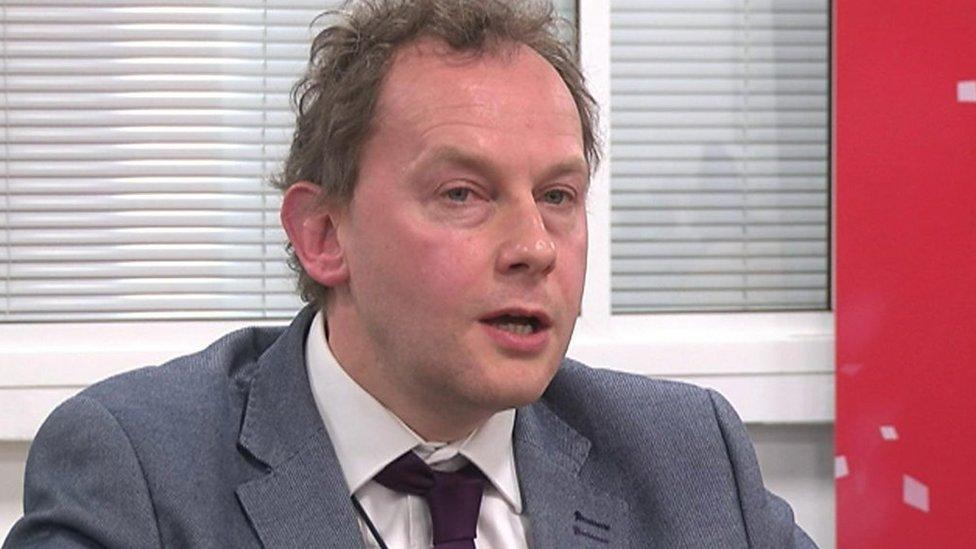UKIP call for referendum to scrap assembly in 2024
- Published
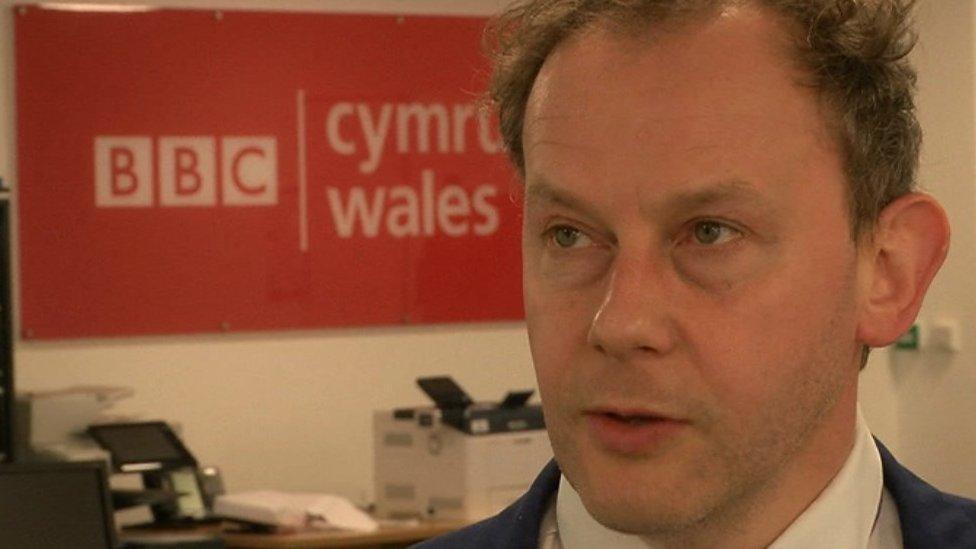
Gareth Bennett said devolution is a "white elephant"
UKIP's ruling body has agreed to campaign against devolution in Wales, calling for a poll on the future of the National Assembly for Wales.
It wants a referendum in 2024, on the 25th anniversary of devolution.
Gareth Bennett, UKIP's assembly leader, was elected last summer on an anti-devolution platform which was not UK party policy at the time.
Welsh Tory leader Paul Davies said it was "out of the question" to think of abandoning the Senedd.
The change, which would see the party campaign against the institution if any poll was to happen, was adopted by a unanimous vote of the party's National Executive Committee.
Mr Bennett: "Devolution is a white elephant which has added nothing to the welfare of people in Northern Ireland, Scotland or Wales. The devolved assemblies are a waste of taxpayers' money, and need to be scrapped."
"What the UK clearly doesn't need is this tier of extra politicians who add no value to public life.
"Most indicators show that Wales' performance has got markedly worse since 1999, when devolved government began. We have to accept that devolution hasn't worked for most people."
BBC Wales' St David's Day poll suggested support amongst voters for abolishing the Welsh Assembly stood at 13% - but 46% said they wanted a National Assembly with greater powers.
Some 27% preferred the status quo - meaning a majority of respondents backed the institution.
In the 2016 election the Abolish the Assembly Party won 4.4 per cent of the regional vote.
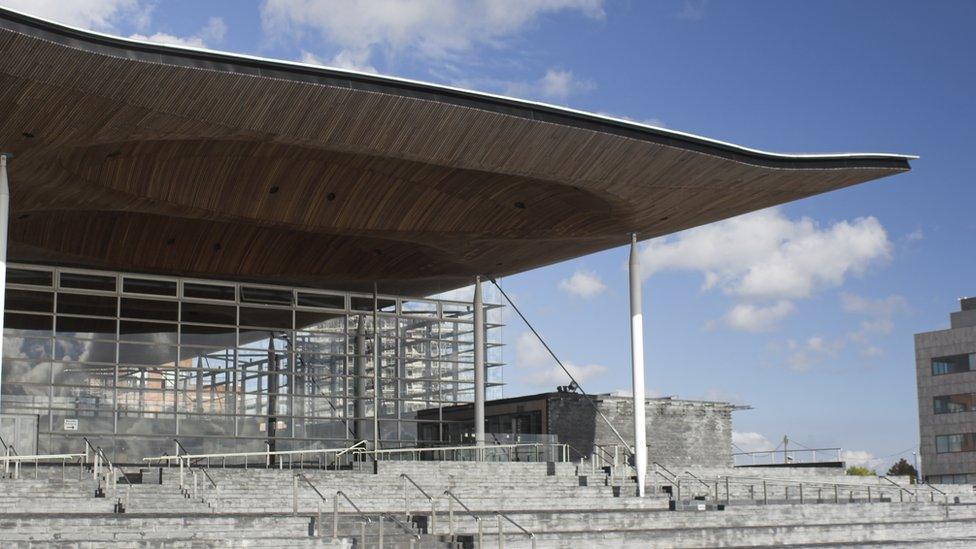
National Assembly was set up in 1999, after a referendum in 1997
David Rowlands, UKIP AM for South Wales East, said he would personally not want the assembly to be abolished.
"But I do think the people ought to have a say after 20 years," he said, "in the same way I would be quite happy if, after we come out of the European Union, in 20 years time we ask people if they would like to come back into the EU."
UKIP leader Gerard Batten said: "Devolution has failed Wales and it is time that the question is put back to the people in the form of a referendum."
Mr Bennett has been working for months to get the rest of UKIP to back the policy.
Its AMs do not control the party's policies, which are agreed with the UK-wide party.
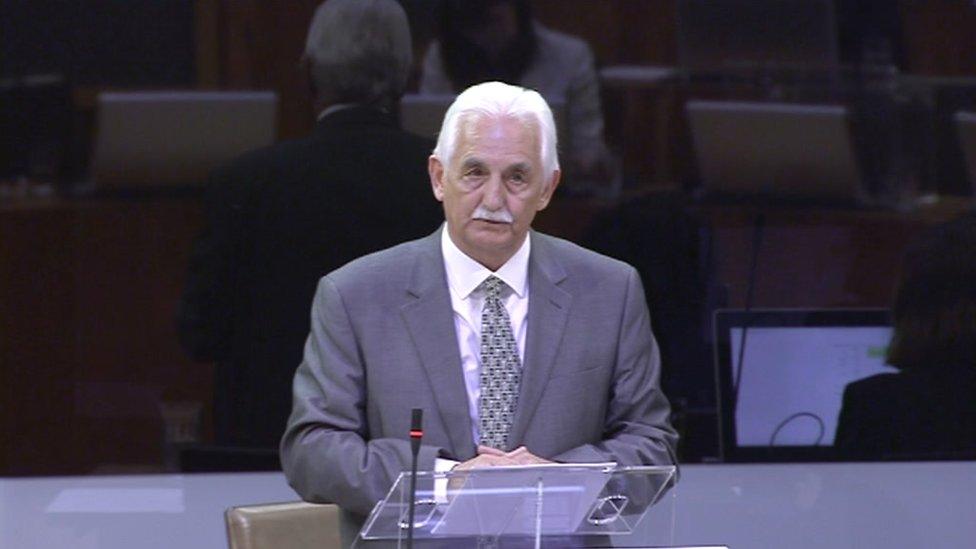
David Rowlands said he would be happy to see a referendum on the EU 20 years after Brexit
Opposition to devolution was UKIP policy prior to 2011. The party then decided to support devolution after that time.
UKIP won seven seats in the assembly in the 2016 election, but disputes and disagreements have seen AMs leave the group. It now has four AMs.
The assembly was established following a referendum in 1997 - another in 2011 gave it greater law making powers.
Plaid Cymru's Dai Lloyd said: "They are an irrelevant party with an irrelevant policy that is not representative of the people of Wales."
Welsh Conservative assembly leader Paul Davies said: "After being voted for democratically, devolution in Wales has been proudly in place for more than 20 years and it's out of the question to think of abandoning it now."
"UKIP have been laid bare for the inward looking, opportunistic, English nationalists that they are," Welsh Labour assembly chairwoman Vikki Howells said.

Analysis
by BBC Wales political editor Felicity Evans
This could be a canny move on the part of UKIP.
Ever since the Brexit referendum, the party has been struggling to find a foothold in the new political landscape.
It's clear Gareth Bennett thinks this is an issue which can bring the party enough support to keep it viable in a post-Brexit political climate.
Right now polls suggest the majority of voters are supportive of devolution - but this policy change should be a warning to the pro-devolution parties.
Euro scepticism was once a minority interest.
- Published12 August 2018
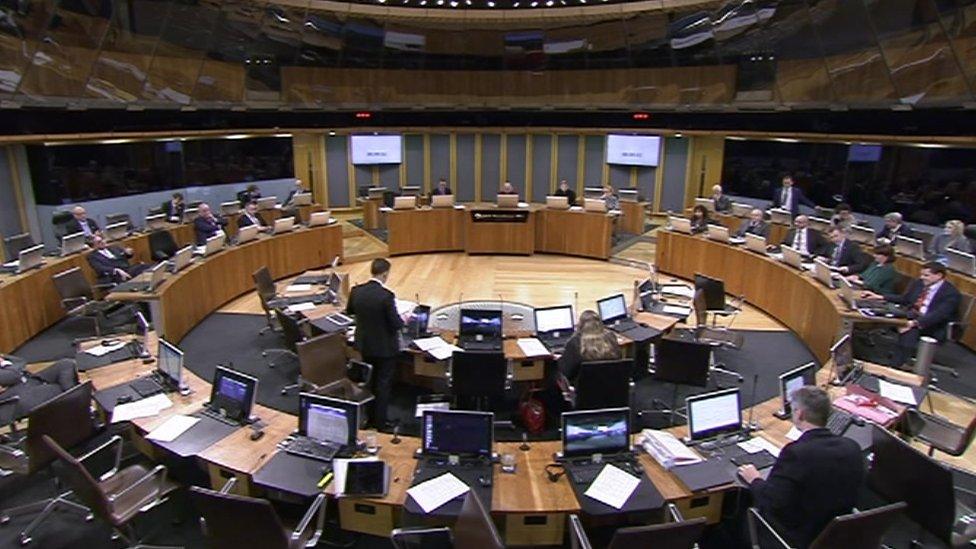
- Published10 August 2018
